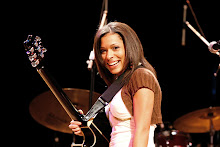What is worship?
Worship encompasses your whole life. During our course we’ve looked at what is says in Romans 12:1-2 about being a “living sacrifice”. The Message says it well:
“So here's what I want you to do, God helping you: Take your everyday, ordinary life—your sleeping, eating, going-to-work, and walking-around life—and place it before God as an offering. Embracing what God does for you is the best thing you can do for him. Don't become so well-adjusted to your culture that you fit into it without even thinking. Instead, fix your attention on God. You'll be changed from the inside out. Readily recognize what he wants from you, and quickly respond to it. Unlike the culture around you, always dragging you down to its level of immaturity, God brings the best out of you, develops well-formed maturity in you.”
Honestly, I’m not sure I could say it better than that.
I love what Wright says on the topic of “Reclaiming Worship” that humans are to reflect God into Creation and then sum up the praises of Creation and present them to God[1]. I believe we do that with our lives.
What does music and creativity have to do with it?
As Dan Wilt discusses “The Nature of the Human Being,” he points out that everybody has creativity in them. Wilt says that creativity allows us to think through and wrestle with ideas and problems.[2] Creativity is being fully alive before God and doing your passion which involves your whole life, not just a couple hours on Sunday morning.
But still, why music?
As Brian Doerksen points out, it is something that we can all do together.[3] The Bible says in Psalm 98:4, “Make a joyful noise unto the LORD, all the earth: make a loud noise, and rejoice, and sing praise” (King James Version; I love the wording in this version!). Anyone can make a loud, joyful noise, from infancy right up to the days when your body is worn.
I also think music helps to express thoughts and emotions that words simply can’t express adequately. The Bible even acknowledges in Romans 8:26 that sometimes words simply aren’t enough: “… the Spirit himself intercedes for us with groans that words cannot express” (NIV).
How does worship further the Kingdom Story in the world?
As mentioned previously, worship involves the entirety of a person and his/her life as they reflect the glory of God into the world and then gather Creation’s praises and present them back to God[4].
In Simply Christian, N. T. Wright discusses how heaven and earth “overlap and interlock in a number of different ways”[5]. God did not create the world and then leave it to its own devices; He is very present and active. He intends to make everything new and put everything right again in the world: “God does indeed intend to put the world to rights”[6].
Dan Wilt talks about the characteristic of “God as Saviour”[7]. As a result, because are made in the Imago Dei (image of God), we are “salvific storytellers”.[8]
As we reflect the glory of God into the earth we tell a story of hope to all those around us. We take part in heaven meeting earth as we display God’s love and desire for our restoration.
How should all of the above affect how we lead worship as worship leaders?
We need to be aware that leading worship means leading with your whole life, not just with the music on Sunday morning. Every Christian is themselves a worship leader in the way they represent God here on earth and then present Creation’s praises to God, and we simply help them along in the process of discovering the wonderful task God has given us in this. This task is wonderful news! We get the privilege to tell everyone about the hope that is found in Jesus Christ and participate in making God’s will happen here on earth as heaven and earth meet.
[1] Audio CD: Wright, Reclaiming Worship
[2] Audio: Wilt, Essentials in Worship Theology, The Nature of the Human Being
[3] What is Worship? DVD
[4] N. T. Wright, Reclaiming Worship
[5] N. T. Wright, Simply Christian, page 63
[6] Ibid. page 225
[7] Dan Wilt, Essentials in Worship Theology, The Nature of God (section 2)
[8] Dan Wilt, Essentials in Worship Theology, The Nature of the Human Being (section 3)
Wednesday, August 6, 2008
Subscribe to:
Post Comments (Atom)

No comments:
Post a Comment